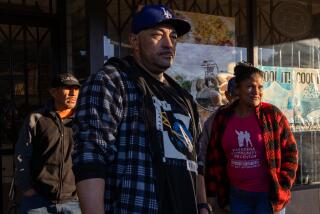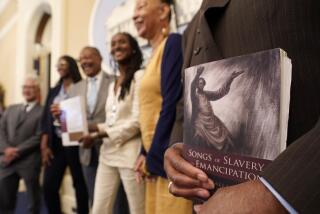Letters: Sweatshop life isn’t liberating
Re “Finding liberty in hard labor,” Column One, March 13
In 1911, 146 sweatshop workers — mostly women — burned to death in the Triangle Shirtwaist Factory fire in New York City. This led to major protests, the beginning of safety regulations and the unionization of sweatshop workers in the United States.
Now things are worse. In 2012, a sweatshop fire in Bangladesh killed 112 workers, and last year in the same country the collapse of another sweatshop killed more than 1,100 people. And yet, The Times prints an article about how these sweatshops help women in Bangladesh to gain liberty.
FOR THE RECORD:
Sweatshops: A March 18 letter to the editor on garment factories in Bangladesh incorrectly identified author Marc Bender as a Legal Aid Foundation attorney. In fact, Bender is a legal aid attorney at Bet Tzedek Legal Services. —
That U.S. manufacturers send their clothing to sweatshops in Bangladesh as well as downtown Los Angeles, where workers are paid sweatshop wages, is outrageous. For a Times article to imply some silver lining around these sweatshops is even more so.
Leslie Simon and Marc Bender
Woodland Hills
Simon is a longtime union organizer, and Bender is a 25-year legal aid lawyer who routinely sues sweatshops.
I rejoice at the thought that multinational brands such as Gap and others support freedom in the world by supporting something like slavery. It would seem that The Times has come around to the time-tested notion that slavery is good for the slave.
One can find liberty in hard labor, certainly, or as we say in German, “Arbeit macht frei.”
Giovanni Zocchi
Los Angeles
ALSO:
Letters: A savior to burn victims
Letters: Protection for bad doctors
More to Read
A cure for the common opinion
Get thought-provoking perspectives with our weekly newsletter.
You may occasionally receive promotional content from the Los Angeles Times.






